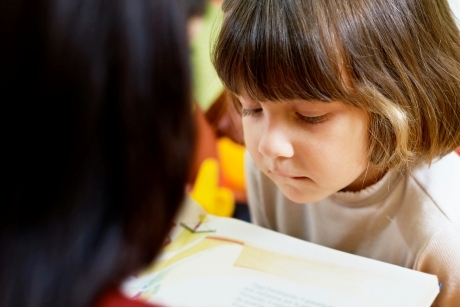
At the end of February Save the Children released the results of a study that suggested that children’s ability to communicate when they start Primary school could determine how well they do in their SATs at age 11.
The research, carried out by academics at the Institute of Education, was conducted in support of of the national Read On Get On campaign.
Results implied that children with poor skills in the likes of storytelling and language use were more likely to struggle academically in both English and Maths by the time they were due to leave Primary school.
It also showed that environmental factors like parental educational and poverty might not have as much as a link to future attainment as the language levels of a pupil.
As a result of the study, some educational commentators have turned their attention to language provision in nursery schools. But here are a few ideas for improving language skills in the first stages of Primary school, through the medium of school visits.
Discover, Children’s Story Centre
Located in Stratford, London, Discover offers a Story Trail to Key Stage 1 pupils all year round. The idea is to engage children with a story-building mission.
They’re told that the Planet Squiggly Diggly is running out of stories and asked to help Hootah, the baby space monster, save the planet by creating new ones.
Through spoken language, listening, drama, storytelling and exploration of Discover's environments children learn the key elements of story craft, including character, setting and plot, to help Hootah to create new stories for Squiggly Diggly.
Seven Stories
The National Centre for Children’s Books is located in Newcastle and offers a number of opportunities for Key Stage 1 pupils.
School groups can explore the Rhyme Around the World exhibition on nursey rhymes to learn about rhythm in language, as well as word play and rhyme.
Plus, they can take part in storytelling workshops and enjoy narrative led games as extras during a visit.
The World of Beatrix Potter
The World of Beatrix Potter in the Lake District offers a huge range of resources on storytelling and language development for teachers to use during a self-led visit.
Activities for Key Stage 1 pupils include story sequencing using The Tale of the Fierce Bad Rabbit, and story structure development.
Ideas for follow up activities are available on the website to inspire lesson plans after a visit and sessions can also be arranged with an actress playing Mrs Potter.
King Arthurs Labyrinth
During educational visits to King Arthur’s Labyrinth students will hear stories of King Arthur in Wales which are based on traditional legends from original sources including the Mabinogion and the Tales of Taliesin.
As in these source documents, the tales include both historical references and imagined or literary tradition. A narrator (who eventually turns out to be Taliesin himself) introduces the stories of Merlin at Dinas Emrys and the battle between the white and the red dragon, the battle with the giant Rhitta, the legend of Bran’s head, the battle of Camlan and the voyage to Avalon.
There are also references to the lost land of Cantre’r Gwaelod and the legend that Arthur still sleeps in a cave in the Welsh hills waiting for the call to rescue the Cymru when in danger again.
Educational activities at the attraction can focus on oracy skills and narration, and can be tailored specifically to suit Key Stage 1 and the National Curriculum.
BeWILDerwood
BeWILDerwood in Norfolk is an adventure park set in a forest that is inspired by the magical outdoor setting in the children’s book A Boggle at BeWILDerwood, written by local children's author Tom Blofeld.
The book, and the series that followed it, is about a mystical land of brave and adventurous creatures, and these characters appear across the forest site to engage young children with learning through play.
Visiting schools can listen to storytelling or take part in literacy tasks that require them to write their own BeWILDerwood inspired stories and poems using the natural woodland surroundings to inspire them.
For more information about boosting language in Key Stage 1 pupils visit the website of the I Can campaign, who are experts in helping children develop speech, language and communication skills.










